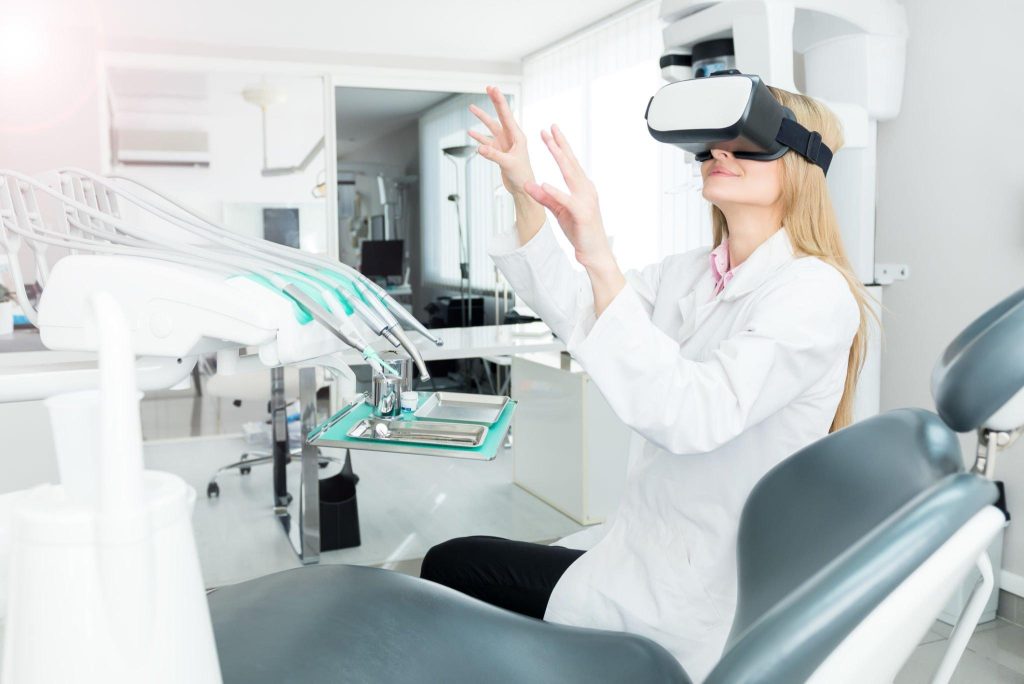Artificial Intelligence (AI) is redefining the landscape of dental medicine by enabling personalized care and optimizing treatment strategies. As discussed by Joda et al. (2020), AI systems offer immense potential for improving both individual and public health through innovative workflows and treatment protocols.
Today, let’s talk about how AI is transforming dental practices into more efficient, patient-centered healthcare solutions.

AI Revolution in Dental Medicine
Transforming Dental Practices
Streamlining treatment plans, and offering predictive insights for better patient outcomes.
Key AI Innovations:
- Diagnostic Precision: Utilizing for accurate disease identification and assessment.
- Personalized Treatment Plans: Algorithms assist in developing tailored treatment strategies for patients.
- Predictive Health Analytics: Using it to predict potential oral health issues before they escalate.

The Role of AI in Personalized Dental Care
Advancing Patient-Centric Approaches
The capability to analyze extensive patient data allows for a more personalized approach to dental care, addressing the unique needs of each patient.
Benefits of Personalized Care:
- Customized Treatments: AI-driven insights lead to treatments tailored to individual patient needs (Joda et al., 2020).
- Enhanced Patient Engagement: Engaging patients in their care process through AI-powered tools and applications.
- Improved Health Outcomes: Improved treatments and preventive care strategies based on personalized data.
Overcoming Clinical Challenges
Streamlining Dental Workflows
AI systems are not just enhancing patient care but also revolutionizing dental practice management, making them more efficient and cost-effective.
AI in Clinical Management:
- Automated Administrative Tasks: Reducing the workload on dental staff by automating scheduling, billing, and record-keeping.
- Optimized Resource Management: It helps in better resource allocation and inventory management.
- Improved Practice Efficiency: Enhancing overall clinical workflow and patient management.

In Public Health
Enhancing Community Oral Health
Potential in improving public health is significant, with applications in epidemiological studies, community health programs, and policy-making.
AI’s Impact on Public Health:
- Epidemiological Research: AI assists in analyzing large-scale data for oral health trends and patterns.
- Targeted Health Programs: Designing community-specific oral health initiatives based on AI-driven insights.
- Policy Development: Informing public health policies through data analysis and predictive modeling.
Navigating Ethical and Legal Aspects
While it offers numerous benefits, it also raises ethical and legal concerns that must be diligently managed to ensure patient safety and privacy.
Ethical and Legal Considerations:
- Data Privacy and Security: Ensuring patient data confidentiality in systems.
- Informed Consent: Clear communication to patients about using AI in their treatment.
- Bias and Fairness: Addressing potential biases in algorithms to ensure equitable care.

Looking Ahead: The AI-Driven Dental Practice
The future of dental medicine with integration looks promising, with continuous innovations enhancing patient care and practice efficiency.
Future Developments:
- Advanced Algorithms: Continued development of sophisticated AI tools for more accurate diagnoses and treatments.
- Integration with Emerging Technologies: Combining it with technologies like augmented reality and teledentistry.
- Expanding Applications: Broadening the scope of in various dental specialties for comprehensive care.
Conclusion
AI is poised to revolutionize dental medicine by enabling personalized care, optimizing treatment plans, and improving public health outcomes. As dental practices adapt to these technological advancements, they must also navigate the ethical and legal complexities associated .
The integration promises not only enhanced patient care but also a new era of efficient and effective dental practice management.
